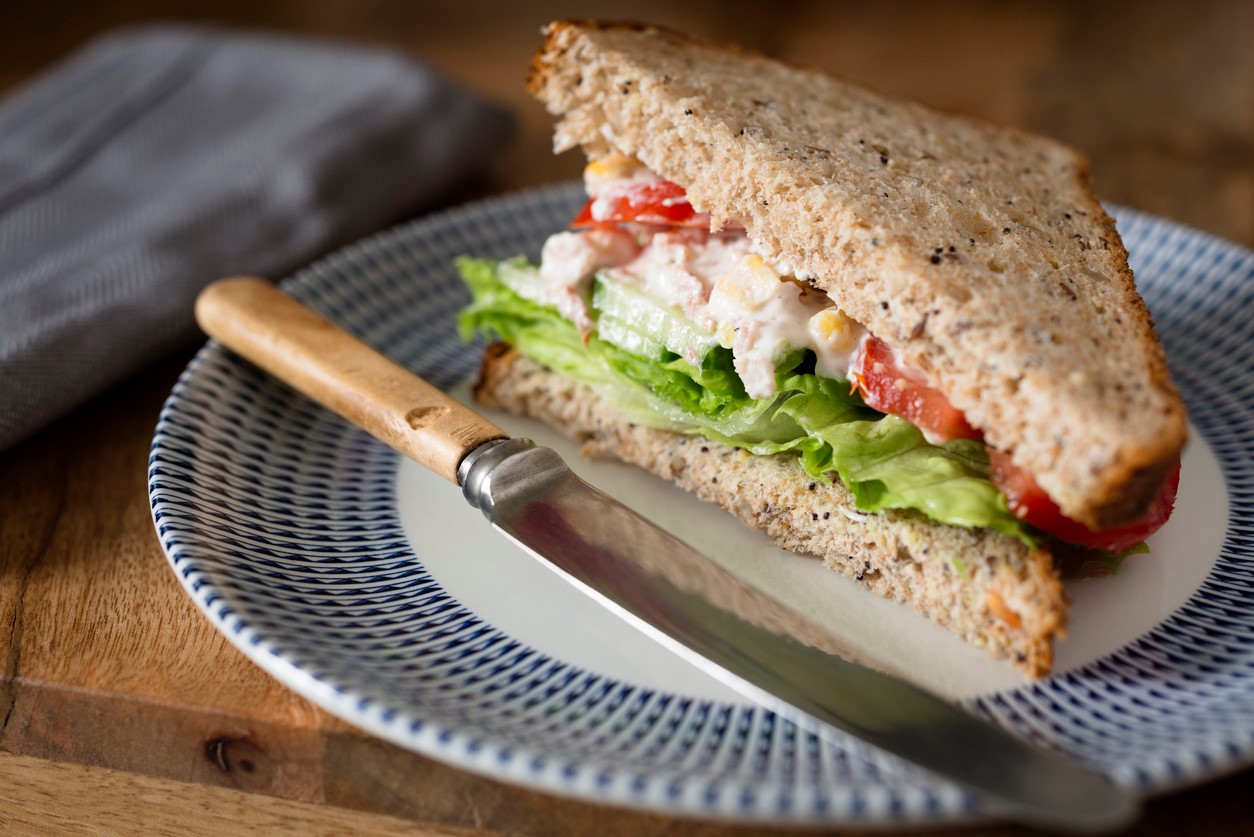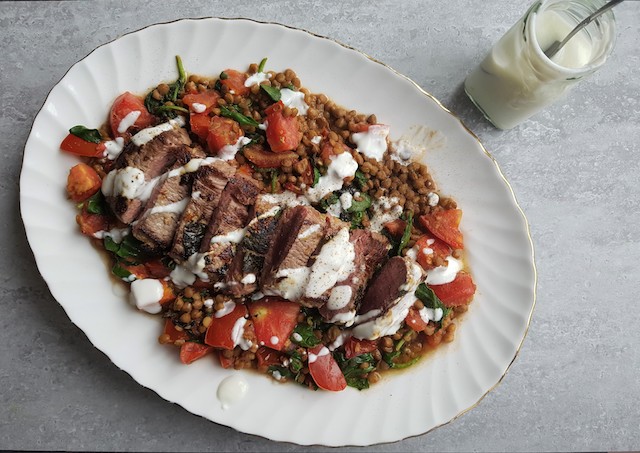- Home
- Blog
- Healthy Eating for Wellness
- A ‘plant-based’ diet isn’t a ‘PLANT-ONLY’ DIET!
A ‘plant-based’ diet isn’t a ‘PLANT-ONLY’ DIET!
Written by Catherine Saxelby
on Wednesday, 19 September 2018.
Tagged: health, healthy eating, healthy lifestyle, nutrition

I’m a little tired of people using the term ‘plant-based’ to mean ‘plant-only’. It’s not correct. We don’t have to abandon meat and dairy completely. I eat a plant-based diet - lots of vegetables and salads as well as legumes, fruits, nuts, seeds, and whole grains. However, I do still eat small amounts of meat, fish and chicken, and it’s healthy.
Increase your veggies
What nutritionists actually want when they speak of a ‘plant-based’ diet is for people to increase the quantity of vegetables, legumes, grains, nuts and seeds they eat – foods that are derived from plants - and in turn reduce the quantity of animal-based foods such as meat, fish, eggs or milk. Better for the planet, better for our health.
So why the confusion?
The growing popularity of events like Meat-Free Monday and the number of meatless meals springing up everywhere, mean that the term ‘plant-based’ has changed its meaning for many people. I was spurred to write this post after reading a similar column from the Editor of the Healthy Food Guide magazine in New Zealand. In it, she writes:
“Plant-based does not have to mean meat-free. A plant-based diet can include, if you like it, meat, fish, chicken or dairy.”
“You don’t have to be a vegetarian or vegan to reap the benefits of plants. Instead of basing the dish on the protein (meat) component, try basing it on the plant (vege) component. Think of meat as a garnish, an addition to the main event.”

Benefits of more plants
Research shows that a plant-based diet can help reduce our risk of developing chronic conditions like diabetes, obesity and heart disease. Plus it seems that weighing less is easier if you’re eating more veggies – all that fibre, all that chewing from whole foods. It adds up.
Plant-based does not mean vegan
Plant-based is not the same as a vegan diet. Plant-based simply means more plants and less meat – it’s fairly flexible, but still includes dairy for one person, while someone else might include a few meat products but still the focus of the majority of meals is on plants.
Veganism is a way of life more than a diet. And vegans not only eat a diet which excludes all animal products they don’t use animal products such as fur and leather for clothing. A vegan diet is much stricter than a vegetarian diet or a plant-based diet and leaves little room for interpretation. It also can lead to nutrient deficiencies such as a shortage of B 12, long-chain omega-3s, haem iron, zinc and calcium. It takes more planning and thought to ensure you get these key nutrients, especially if you’re feeding kids.

Not so healthy plant based
Just because something is labelled ‘plant-based' doesn’t mean it’s healthier (a bit like gluten-free or organic). There is plenty of unhealthy junk food that can be called ‘plant-based’ such as lollies, chocolate, muffins, bars and shakes.
Don’t be taken in by the claims from packs of noodles or salad bowls – these always WERE plant-based. Now they’re just proclaiming it as a marketing ploy.
How to go more plant-based
- Change the proportions of the meals you dish up – serve LESS meat or fish and MORE of the rest. A general rule is to aim for one-half of your plate to be made up of plant foods like veggies, fruits, grains, beans.
- Have one or two days a week that are meatless, which can make cooking easier for some. There are some wonderful meatless ideas around such as cauliflower bake with cheese sauce, vegetable pizza, zucchini lasagne or vegetable frittata. Try a new dish each week until you have a repertoire of 3 or 4 tried and tested dishes that your family loves.
- If you prefer, look for dishes that work well with only a little meat. Traditionally these were those old-fashioned recipes that used cheaper cuts of meat and required long slow cooking – perfect for a slow-cooker and for the budget. Try lamb shank stew with pearl barley, chicken Korma with vegetables, Scotch broth, slow-cooked pork with coleslaw, hearty beef and barley soup, lamb mushroom burgers (where the mushrooms add that umami flavour but mean less mince), beef or chicken stir-fry or my lentil-mince Bolognaise (recipe here). Or, how about Tacos with mince and kidney beans?
- Cook with less meat.

Buy only 350-400g raw weight of red meat for 4 people (I used to buy 500g). This yields 90-100g per person which is defined as one healthy serve by the official Australian Guide to Healthy Eating. With water loss, this cooks down to much less.
The bottom line
Plant-based means exactly what it says. The basis, or majority, of your diet comes from plants, the other foodstuffs like meat, chicken, fish, and dairy are a minor part of the whole diet.
It’s a healthy way to eat as it delivers a variety of nutrients, more fibre and more health-giving phytochemicals while still providing adequate protein.
You may also be interested in...
Jemma O'Hanlon
The Good Stuff
The Boring Stuff
© 2025 Foodwatch Australia. All rights reserved
Website by Joomstore eCommerce









